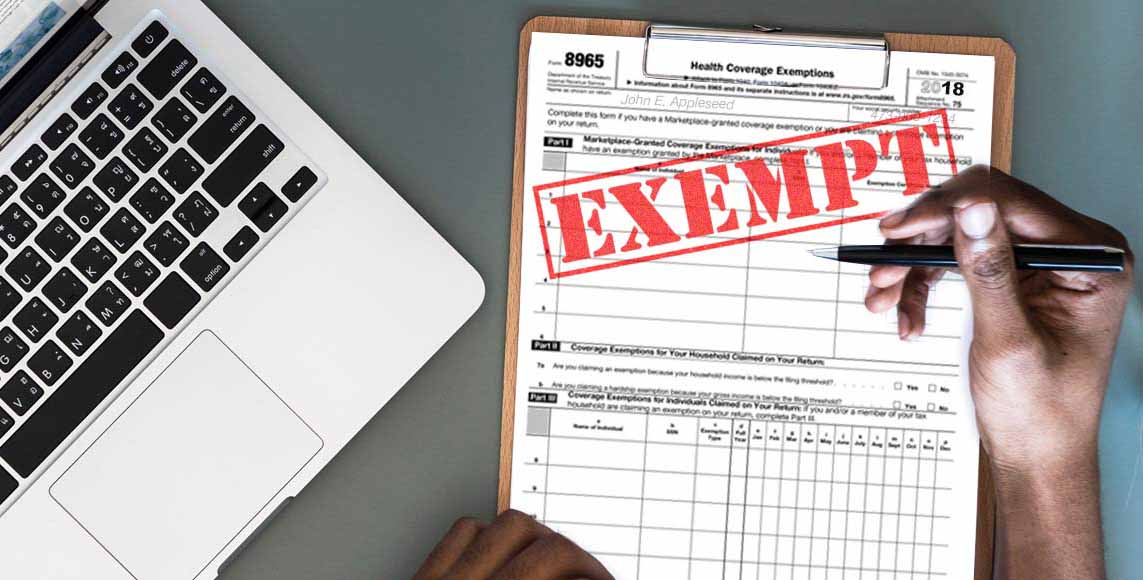
Key takeaways
- Under the Affordable Care Act, Americans faced a penalty for not having ACA-compliant health insurance.
- Many Americans were able to get an exemption from the penalty.
- With the elimination of the federal penalty, the need for exemptions has also ended for many.
- Several states now have their own individual mandates – and corresponding individual mandate exemptions.
- Hardship exemption guidelines now determine eligibility for catastrophic plans when an applicant is 30 or older.
The individual mandate – and exemptions
Under the Affordable Care Act (aka Obamacare), most Americans are required to maintain health insurance. And from 2014 through 2018, there was a tax penalty for non-compliance.
During this time, however, many Americans were able to get exemptions from the individual mandate penalty. The exemptions included:
- Religious exemption.
- Hardship exemptions – available for a broad range of situations.
- Affordability exemption.
- Exemption because the person would have been eligible for Medicaid but wasn't because their state hadn't expanded Medicaid.
- Exemption because the individual volunteered through AmeriCorps, VISTA, or the National Civilian Community Corps, with a short-term plan through the volunteer organization.
- Exemption for a short gap in coverage.
Those are just a few of the exemptions that were available. And during the years that the penalty applied, millions of uninsured people didn't have to pay the penalty because they qualified for exemptions. In 2018, the federal government made it easier for people to obtain hardship exemptions, likely increasing the number of people who qualified for exemptions when they filed their 2018 tax returns.
The ACA's individual mandate penalty was eliminated at the end of 2018, as part of the Tax Cuts and Jobs Act. So although there is technically still a requirement that people maintain health insurance coverage, there is no longer a penalty for being uninsured. Does that mean there is no longer a need for exemptions? Not exactly.
State-based individual mandates and exemptions
For starters, a growing number of states are imposing their own individual mandates and corresponding penalties.
Residents in Massachusetts, New Jersey, and DC are required by state mandates to maintain health insurance in 2019 (and future years) or face a possible tax penalty when they file their state/district tax returns in early 2020.
Starting in 2020, residents in Rhode Island and California will also be required to maintain health insurance or face a potential penalty. Vermont is also implementing an individual mandate in 2020, but has not yet established a penalty for non-compliance. (This may be reconsidered during the state's 2020 legislative session, so there's a possibility that a penalty will be added for future years.)
And although the specifics vary from one state to another, each of these states has an exemptions/appeals process that residents can use. Click on the following links for details regarding individual mandate penalty exemptions:
- Massachusetts
- New Jersey
- DC
- Rhode Island (general guidelines as described in the state's 1332 waiver and individual mandate legislation; additional details will be available by 2020).
- California (general guidelines as described in the state's individual mandate legislation; additional details will be available by 2020).
Hardship exemptions still necessary to enroll in a catastrophic plan if you're 30+
As mentioned above, until the ACA's individual mandate penalty was "retired," many Americans were able to get hardship exemptions – for a long list of reasons – to avoid a penalty. And the Trump administration expanded the list of reasons a person can qualify for a hardship exemption.
The guidelines of those hardship exemptions (which includes affordability exemptions) have, in fact, survived – but they're now being used to determine eligibility for people age 30 and over who want to purchase a catastrophic health plan. That's because catastrophic plans can only be purchased by those under 30 and people who have a hardship exemption from the ACA's individual mandate.
Louise Norris is an individual health insurance broker who has been writing about health insurance and health reform since 2006. She has written dozens of opinions and educational pieces about the Affordable Care Act for healthinsurance.org.
